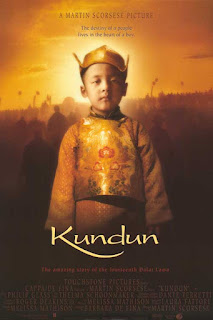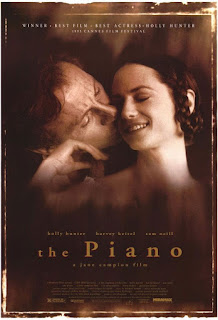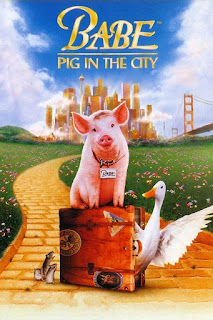December 28th: KUNDUN (Martin Scorsese, 1997)
NOTE: This film will be projected in the high-definition Blu-ray forma
The life of the 14th (and current) Dalai Lama, from his discovery in a small village as a child to his conflict with the communist party and its chairman Mao Zedong.
Screenwriter Melissa Mathison (E.T. the Extra-Terrestrial) had an opportunity to meet the Dalai Lama in the 1990s, and proposed writing a script about his life. He agreed to a series of interviews from which she drew most of her material. The focus of much of her script was on the young Dalai Lama's perspective as a child, in keeping with most of her other screenplays.
Mathison proposed the idea of Martin Scorsese directing the film to producers. In addition to his previous cinematic exploration of religion with The Last Temptation of Christ, Scorsese, often sick and bedridden as a child, related to the Dalai Lama's isolation and education of the outside world through watching movies and newsreels.
Breaking from his usual cinematographers, Scorsese worked for the first time with Roger Deakins, known most for his association with the Coen Bros., but who also had documentary experience that the director felt would come in handy. Because of China's control of Tibet, the production was forced to find outside locations for the shoot, eventually settling on various cities in Morocco. With the cast, authenticity was heavily stressed, with all of them coming from Tibet, and all non-actors.
While the first stretch of the film is told in straightforward fashion as scripted, it becomes more impressionistic as it continues, Scorsese and longtime editor Thelma Schoonmaker deciding to move scenes and shots around for greater emotional effect. For the film's musical score, they sought out avant-garde composer Philip Glass.
Buckling under pressure from a displeased Chinese government, distributing studio Disney did little to promote the film, and actually apologized for releasing it. It received mostly positive reviews, and received Academy Award nominations for art direction-set decoration, score, cinematography, and costume design.
Running time is 2 hrs, 15 min.









Comments
Post a Comment